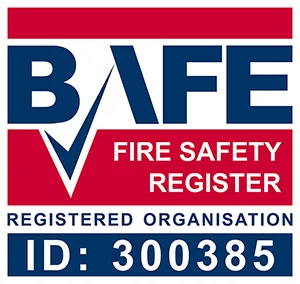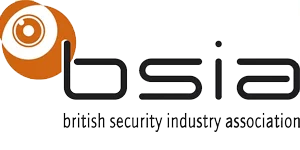You probably won’t be surprised to learn that there are a number of legal requirements and general guidelines you must adhere to, if you are having CCTV cameras fitted on your premises. These rules and regulations apply to both commercial and residential CCTV installations – although they do vary and tend to be more stringent for businesses.
These are the things you need to watch out for when it comes to the recording, storage and obtaining of images that are captured on CCTV.
1. Legality of CCTV Installation for Commercial Property
For all CCTV installation in business premises, a Data Protection Impact Assessment (DPIA) must be carried out and you will need to register as a CCTV operator with the Information Commissioner’s Office (ICO)*.
CCTV is covered under the Data Protection Act in both commercial and domestic situations, but it is important to liaise with the ICO on this, to ensure that you are not compromising the privacy of data subjects.
As part of the compliance process, an individual within the company will need to be designated to answer any questions about the CCTV system, in the event that there any incidents to report or complaints made.
Advice on DPIAs is available from the ICO website. Data protection impact assessments | ICO
*The ICO upholds information rights in the public interest, promoting openness by public bodies and data privacy for individuals.
Once the cameras are in place, there are a number of strict guidelines you will need to follow:
- Signage will be required to advise that CCTV cameras are in operation and for what reason.
- You should be able to provide recorded images for up to 31 days. This timeframe can be extended where necessary, but don’t keep images for longer than necessary.
- It’s also important that dates and times are set accurately, should footage be required for evidence in any legal proceedings.
- You are permitted to share images from the camera with the police – upon them producing a formal CCTV request form – so that these images can be admissible in legal proceedings.
- Ensure that staff members are restricted from access to the surveillance equipment unless they are authorised to do so.
- Recording conversations between members of the public is not permitted.
- CCTV should not be positioned in private areas, such as toilets or changing rooms.
- For legal requirements and to adhere to policy guidelines, there should be a regular audit of your CCTV operation.
- Ensure your reference database is accurate and up-to-date.
- At all times, follow the recommended technical and operational standards.
Is it OK to watch staff on CCTV?
The CCTV would have been installed for a specific and agreed purpose. At the same time, employees have strong data protection under the General Data Protection Regulation (GDPR).With this in mind, employers are not allowed to use the cameras in a way which could undermine or lead to a breakdown in trust with members of staff. For instance, it is not appropriate to have a sneaky look at what employees are getting up to in their lunch breaks, when the intended purpose of the surveillance equipment was to deter customers from stealing.
2. Legality of CCTV Installation for the Home
In case you were wondering whether it is possible (or allowed) to install CCTV at home – it is. You have every right to do so.
Special permission is not usually needed for domestic CCTV. However, if your property is listed or in a conservation area, it’s best to talk to your planning department before you go ahead with the installation, as this may have some bearing on what you are permitted to do regarding the positioning of the security equipment.
Generally, for domestic CCTV installations, these are the guidelines you should adhere to:
- Firstly, you should have a valid reason for installing the cameras on your premises.
- Be precise with the designated areas where the CCTV recording will take place.
- Notify your neighbours – it’s important that any equipment is positioned away from any neighbouring properties. If this is impractical due to proximity, you will need to use privacy masking*
- Signage must be visible, advising that surveillance is in operation.
- You must register as a CCTV operator with the ICO if the cameras are providing surveillance beyond the boundary of your property, without masking.
- Recording conversations between members of the public is not permitted.
- 31 days is the standard time for which recordings can be kept, so it is important to ensure the date and time is set accurately from the outset.
- You should only use footage that relates to the protection of your property.
*Privacy masking is a feature present in IP cameras which protects personal privacy. It does this by blocking out parts of the image, so they remain concealed. For a domestic CCTV installation, masking might be necessary to protect the privacy of neighbouring properties that are outside the surveillance area.
Using CCTV is a big responsibility
It’s worth remembering that the legal responsibility relating to CCTV monitoring on domestic and commercial properties, rests with those who decide what the processed data is to be used for - and for what reason.
That is why it is essential to comply with the ICO’s published guidelines appertaining to the Data Protection Act – especially for commercial installations. If it is found that surveillance has been misused, businesses can be liable for fines up to a hefty £500,000.
But don’t let this put you off! CCTV is, and continues to be, a hugely effective deterrent. What’s more, we have many years of experience in guiding clients through the whole process of installing and monitoring surveillance equipment – including making sure you are entirely comfortable with all the rules and regulations surrounding its effective usage.
For CCTV, intruder alarms, fire safety and security, for commercial premises and in the home environment, Justice Fire & Security are one of the best-known and longest established companies in central England. Based in Birmingham, area – we cover a comprehensive 50-mile radius covering the West Midlands and East Midlands as far afield as Wolverhampton, Stoke, Worcester and Northampton even. If you are interested in exploring how CCTV security could help protect your property, please call our main switchboard asap on 0845 468 0927.




